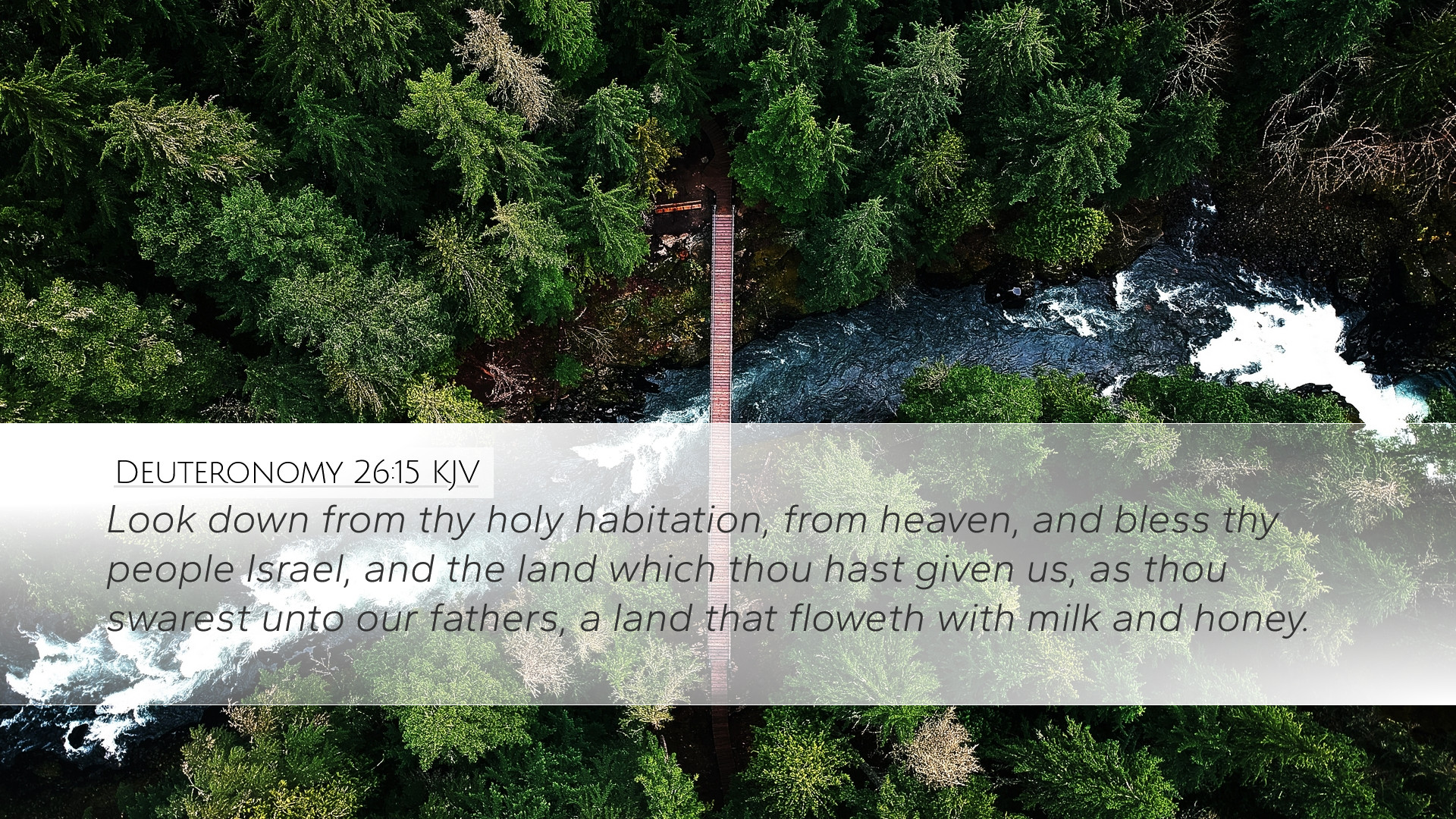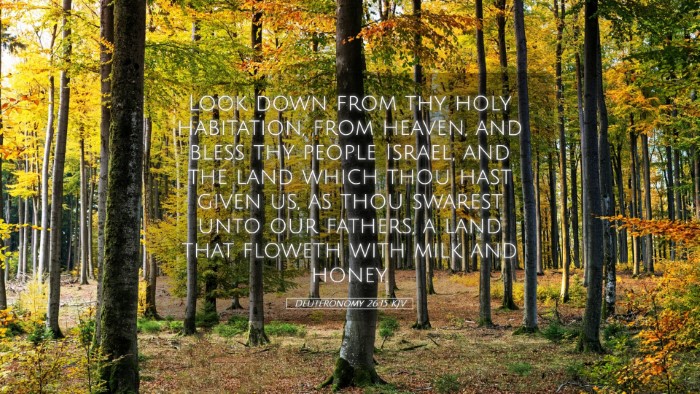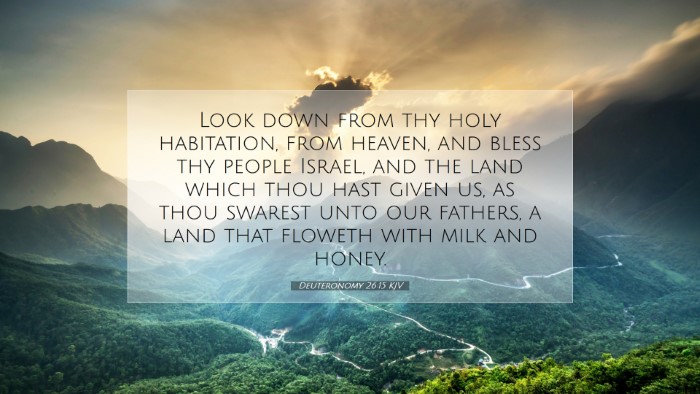Commentary on Deuteronomy 26:15
Deuteronomy 26:15 states: "Look down from Your holy habitation, from heaven, and bless Your people Israel, and the land which You have given us, just as You swore to our fathers, a land flowing with milk and honey." This verse encapsulates a prayerful appeal to God, inviting His divine presence and blessing upon His people and their promised inheritance. In this commentary, we will explore the profound insights from various public domain commentaries that illuminate this verse’s meaning and application.
Contextual Analysis
The context of Deuteronomy 26 is pivotal, as it is part of a series of laws and instructions given to the Israelites as they prepare to enter the Promised Land. This chapter particularly emphasizes the rituals associated with offering the first fruits and a solemn declaration of gratitude and recognition of God's faithfulness.
As Matthew Henry comments, this chapter serves as a reminder to the Israelites of God’s providence and the necessity of acknowledging His blessings through offerings. They are called not only to present the fruits of their labor but also to remember the history of their deliverance and God’s covenant promises.
Theological Implications
The verse invokes the imagery of God’s holy habitation in heaven, which underscores His sovereign authority and transcendence. The plea for God's blessing introduces themes of dependence, gratitude, and the relational aspect of worship. Adam Clarke emphasizes that the request for God to "look down" signifies a longing for divine favor, and it reflects the Israelites' awareness of their need for continual sustenance and protection from their covenant God.
The blessing requested in this verse is not merely material but encompasses holistic well-being for the people and the land—an affirmation that both are gifts from God. Albert Barnes highlights that the land, described as "flowing with milk and honey," represents a place of abundance and prosperity, signifying God's fulfillment of His promise to give the Israelites a rich inheritance.
Divine Blessings and Human Responsibility
The duality of divine blessing and human responsibility is evident in this verse. The Israelites are urged to recognize the blessings they have received while committing to the proper observance of God’s laws. Matthew Henry suggests this is a pivotal aspect of covenant relationship: adherence to God’s commandments leads to divine favor and blessings.
-
Recognition of Divine Provision: The acknowledgment of God’s past faithfulness encourages the faithful to remain steadfast and obedient in their covenantal relationship.
-
Call to Prayer: The act of prayer in this context emphasizes reliance on God. The community of believers are interceding not only for themselves but also for the future generations who will inherit the blessings of the land.
Practical Applications
For pastors, students, and theology scholars, Deuteronomy 26:15 offers key applications that resonate with contemporary faith communities:
-
Community Acknowledgment of God’s Gifts: Encouraging congregations to recognize and express gratitude toward God for His continuous provision in their lives.
-
Emphasizing Prayer in Corporate Worship: This verse serves as an excellent model for communal prayer, drawing attention to communal needs and the expectation of God’s blessing upon the church and its endeavors.
-
Covenantal Relationship Dynamics: Understanding the importance of living in accordance with God’s expectations to fully embrace His blessings.
Conclusion
Deuteronomy 26:15 is a profound appeal for blessing that encapsulates the themes of gratitude, intercession, and the acknowledgment of God’s sovereignty. Through the insights of Matthew Henry, Albert Barnes, and Adam Clarke, we see that this scripture calls the faithful not only to remember their past but also to actively participate in a life of faith that acknowledges God’s providential care. As we reflect on this verse, let us be inspired to seek God’s blessings for ourselves, our communities, and the world around us, continually recognizing our dependence on His grace and favor.


